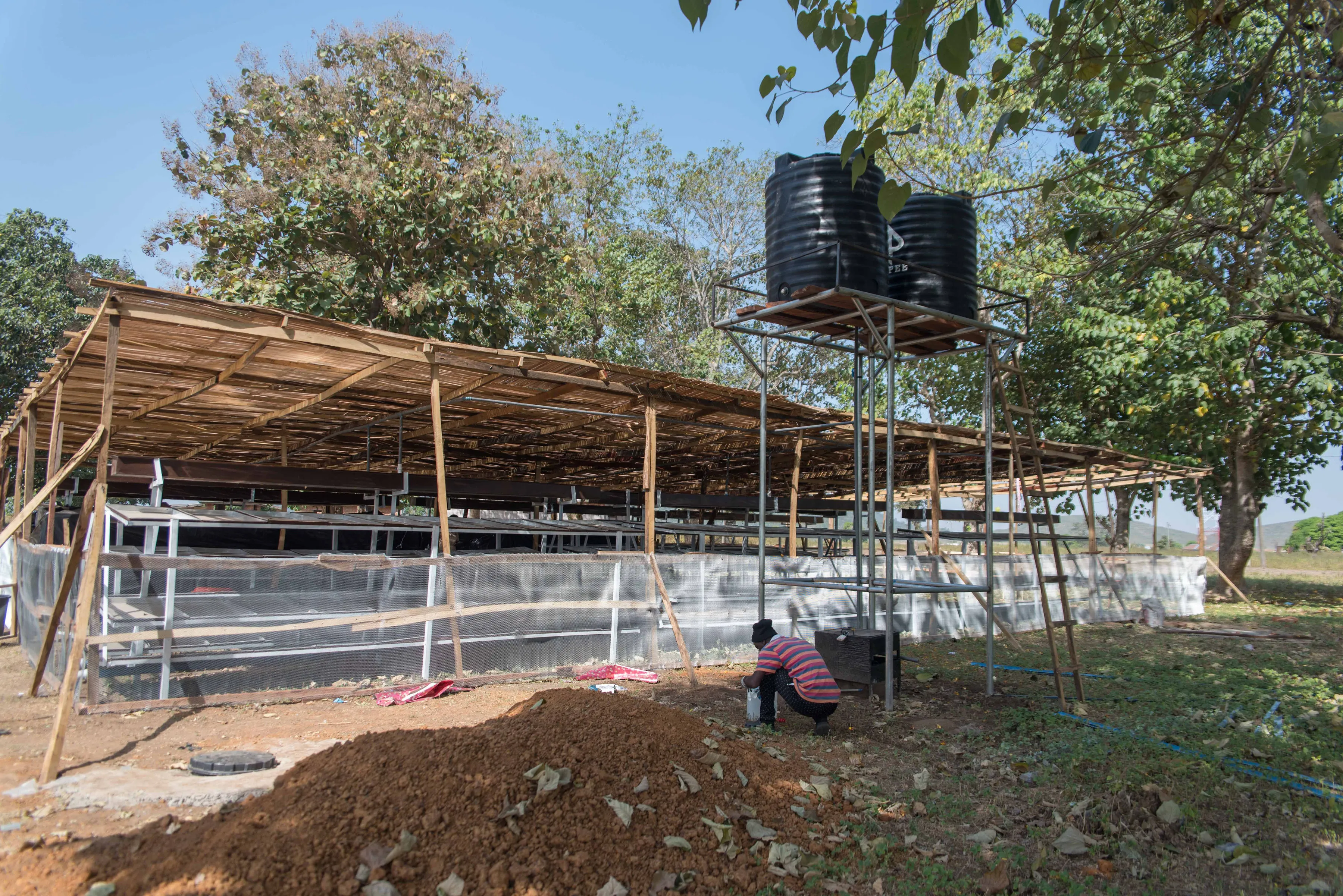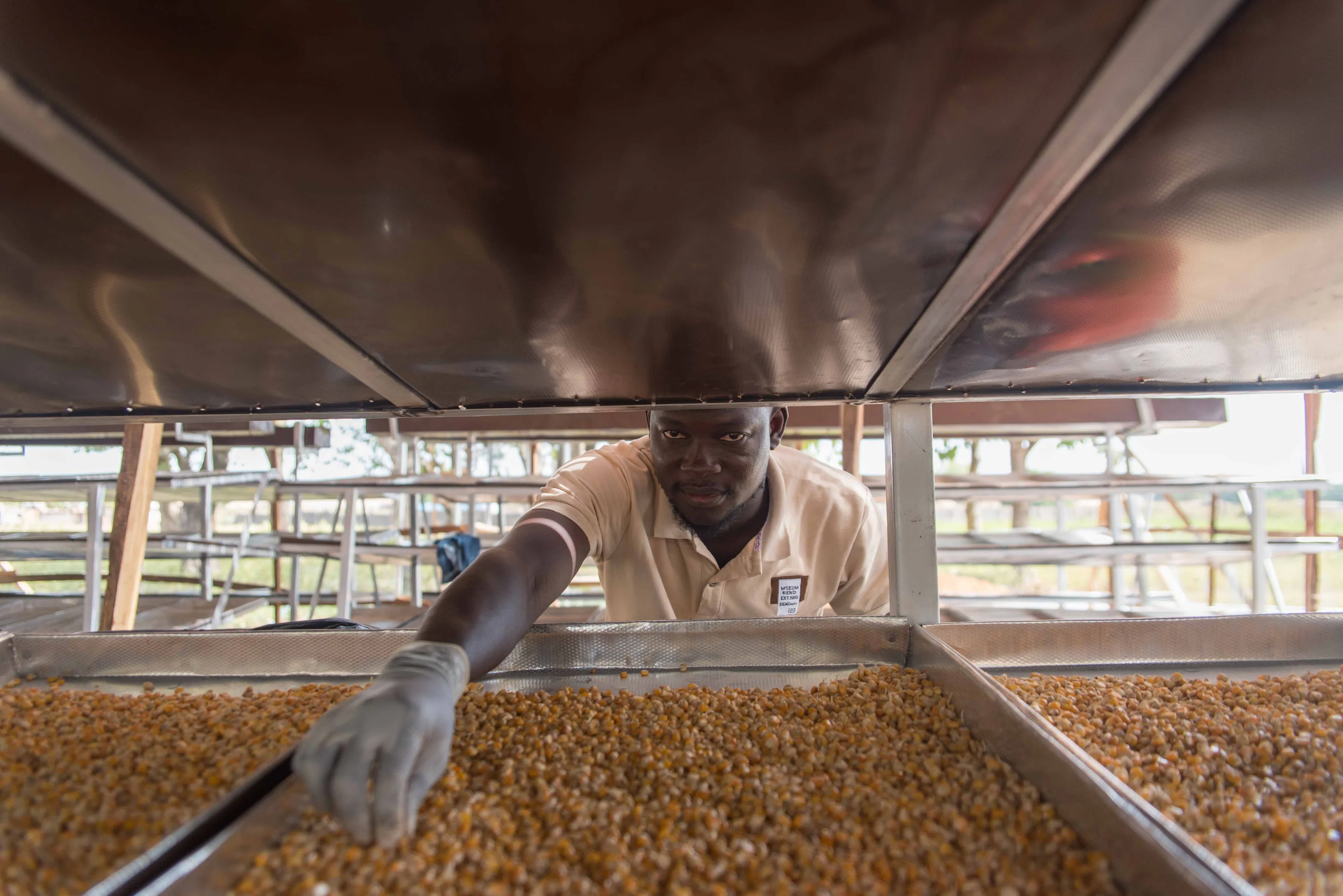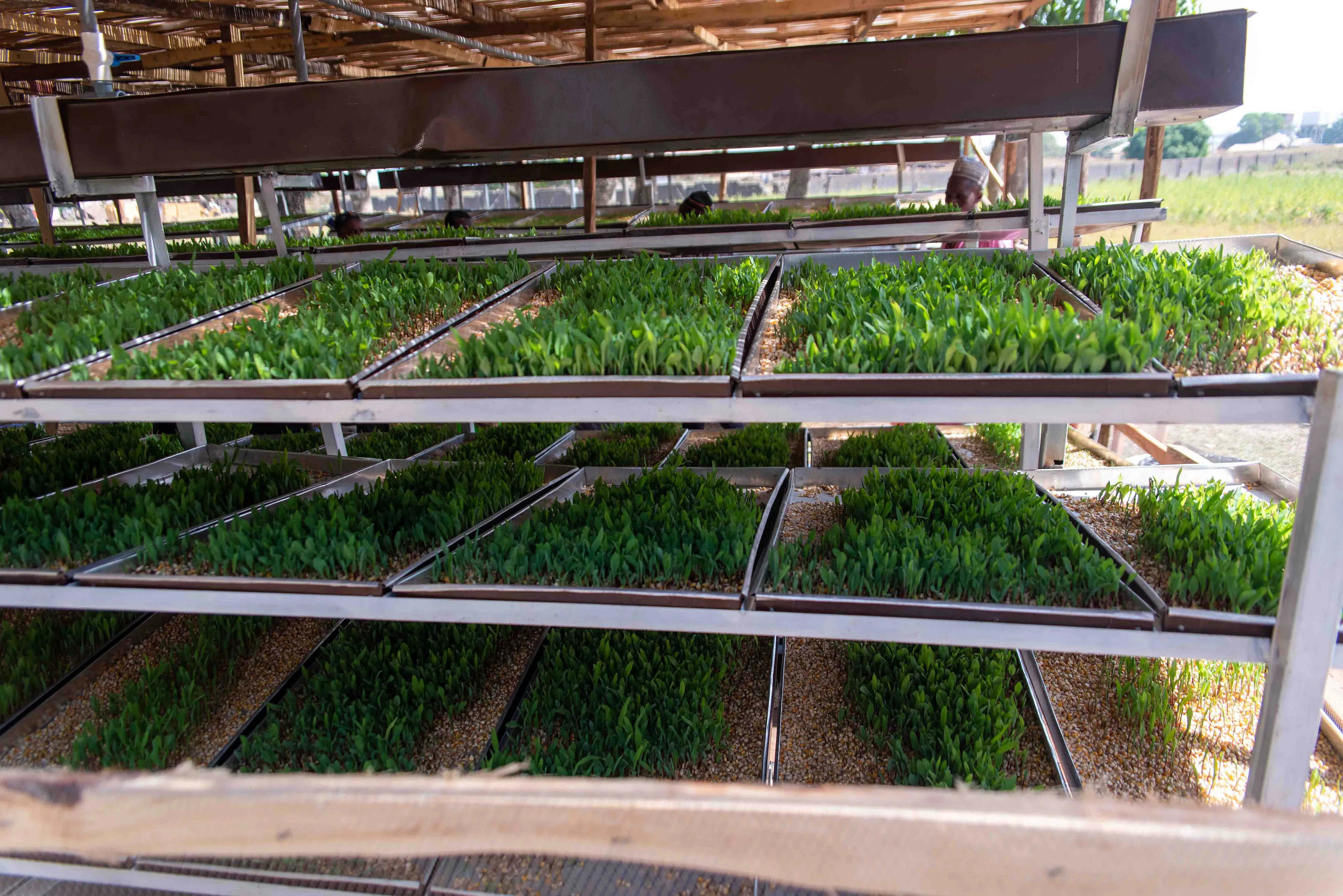Using low-tech innovation to reduce land pressure, improve dairy productivity, and enable herder–farmer cooperation in Nigeria,



Across northern Nigeria, climate change is accelerating conflict between nomadic herders and settled farmers. As pastureland shrinks and traditional grazing routes disappear, livelihoods are under threat — and the country’s dairy sector is struggling with poor yields, land disputes, and dry-season feed shortages.
This pilot set out to test whether hydroponic fodder systems — which grow nutrient-rich grass in just 7 days using 80% less water and 98% less land — could offer a viable, community-led alternative. The aim: reduce open grazing, increase milk production, and lay the groundwork for scalable, inclusive, climate-smart cattle systems

"Even the best technology can fail when the human and ecosystem components are not properly considered. It has been very interesting to be an advisor for this project because of its potential for real societal impact through technology."


Through the Frontier Tech Hub, Brink supported M.E Solutions and pioneers Ogechukwu Omeribe and Esohe Eigbike to test whether hydroponic fodder systems could offer a viable, climate-adapted solution for rural herding communities. Over a two-year engagement, we helped the team move from technical experiments to community pilots, and from concept to early-stage commercial models - validating the system’s agricultural, environmental, and business potential.
Our work included:
Business model design and financial modelling: Worked with dairy companies and banks to co-develop multiple financial models, including outgrower schemes and credit-based models.